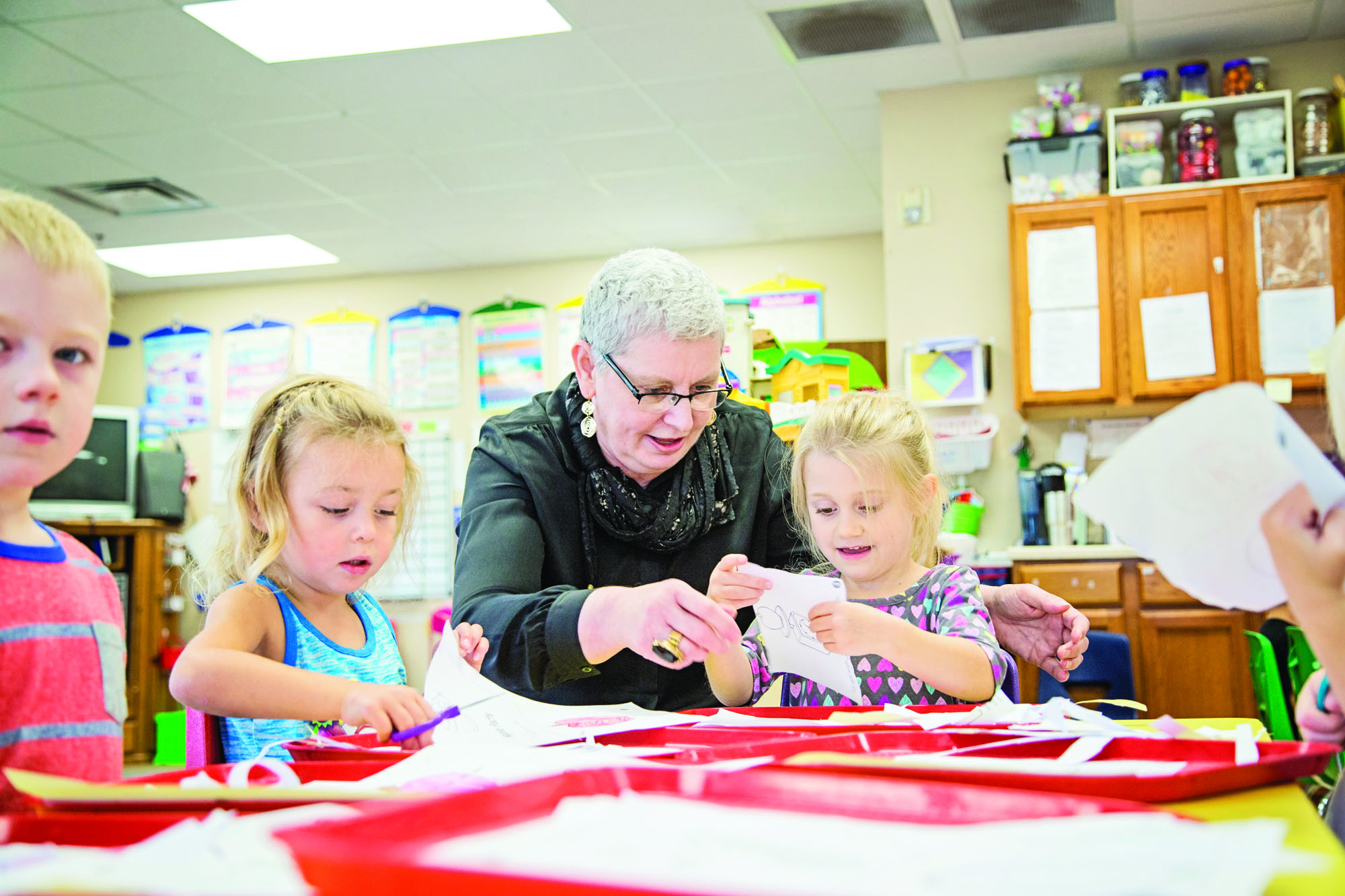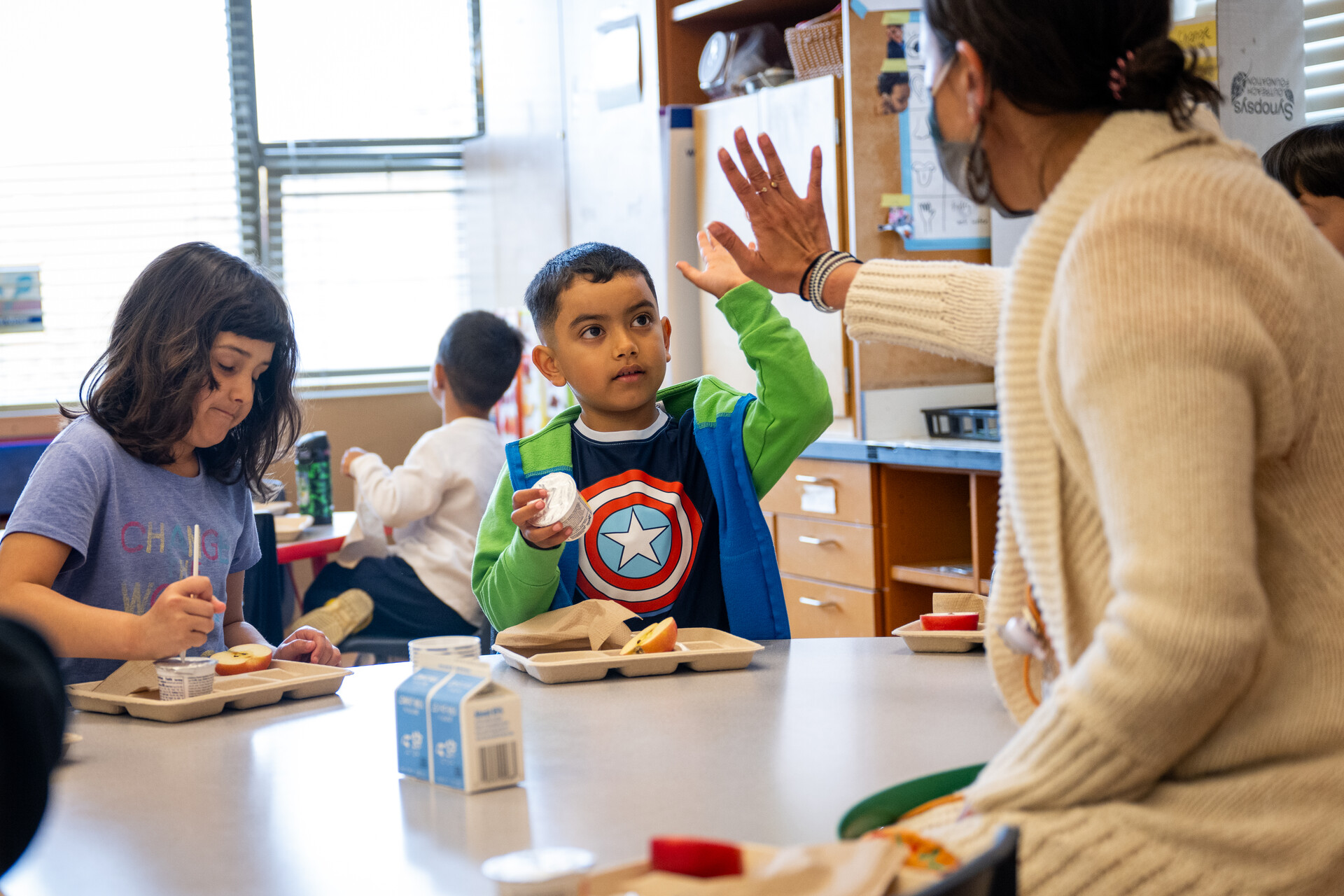Simple outdoor science experiments for Grade School students
Wiki Article
The Value of Interactive Activities in Quality School Education And Learning
Interactive tasks play a crucial duty in grade institution education and learning. They involve students and boost learning results. Via team tasks and hands-on experiments, pupils experience the material in a functional method. This approach deals with diverse discovering designs and promotes necessary abilities. Nevertheless, the advantages expand past academics. Checking out the much deeper impact of these tasks exposes their relevance in forming young learners' futures. What improvements occur when students actively take part?Enhancing Involvement With Interactive Discovering
Although standard training methods have their values, interactive understanding substantially boosts student interaction in grade institution education and learning. This strategy encourages energetic involvement, enabling trainees to submerse themselves in the discovering process. By utilizing group tasks, hands-on experiments, and technology-driven sources, teachers produce an atmosphere where trainees feel extra connected to the material.Interactive discovering assists in cooperation amongst peers, cultivating communication abilities and synergy. It likewise accommodates varied discovering designs, making sure that aesthetic, auditory, and kinesthetic students can all grow. Students are a lot more most likely to retain info when they actively get involved, as opposed to passively obtaining understanding.
This dynamic method not just makes learning enjoyable but also imparts a feeling of ownership in pupils regarding their academic trip. As they involve with the material, their curiosity and inspiration to learn boost, laying a solid foundation for future scholastic success.
Developing Vital Assuming Skills
Interactive knowing not just boosts engagement but likewise offers as a catalyst for developing critical believing abilities in quality college trainees. Through activities such as problem-based learning, disputes, and hands-on experiments, trainees are urged to assess info, examine various perspectives, and formulate reasoned conclusions. These interactive experiences need pupils to wonder about presumptions, leading them to think more deeply about different subjects.
Furthermore, interactive activities typically present real-world situations that challenge students to use their expertise creatively. By navigating with these challenges, they discover to recognize appropriate details and make informed decisions. This procedure promotes not just specific crucial thinking yet additionally urges pupils to express their believed procedures, enhancing their capacity to connect efficiently. Therefore, interactive knowing atmospheres cultivate a generation of important thinkers who are better prepared to tackle complicated issues in their future academic and specialist undertakings.
Fostering Collaboration Amongst Peers
Promoting cooperation among peers is essential in elementary school education, as it enhances synergy and communication abilities. Taking part in team activities aids trainees build trust and regard for each other, preparing for reliable partnership. Additionally, analytic with each other allows pupils to pick up from each other and create a collective approach to challenges.Team Effort and Communication Skills
Efficient synergy and interaction abilities are essential components of an effective elementary school education and learning. Taking part in interactive tasks encourages trainees to team up, share ideas, and solve troubles with each other. Such experiences advertise the growth of critical interaction abilities, enabling youngsters to share their ideas plainly and pay attention proactively to others. Through team effort, trainees learn to appreciate varied perspectives, fostering a sense of neighborhood and shared duty. Structured group tasks, whether in academics or innovative tasks, boost peer interactions, teaching kids just how to negotiate functions and resolve conflicts. These abilities not just add to a favorable class setting but likewise prepare students for future collective undertakings in greater education and the workplace. Generally, synergy and interaction are fundamental to holistic advancement in quality college.Structure Depend On and Regard
Building count on and respect amongst peers serves as a cornerstone for effective partnership in elementary school settings. They are much more likely to engage proactively in team tasks when students feel valued and valued by their schoolmates. Interactive activities, such as group jobs and participating games, offer opportunities for students to pick up from each other, promoting a sense of neighborhood. This setting encourages open interaction, permitting pupils to reveal their ideas and point of views without worry of judgment. As trust constructs, pupils become a lot more happy to share responsibilities and support each other's discovering. Ultimately, growing an environment of trust fund and regard enhances not only academic results yet additionally social advancement, gearing up trainees with necessary interpersonal abilities for their future endeavors.Problem-Solving Together
Joint problem-solving involves pupils in vital reasoning and team effort, important abilities for their scholastic and personal growth. When pupils work with each other to tackle difficulties, they discover to communicate successfully, regard varied viewpoints, and utilize each other's staminas. This process improves their ability to examine troubles from various angles and create innovative remedies. Group activities, such as scientific research experiments or mathematics challenges, promote energetic engagement and promote a sense of area. As students work together, they also build social skills, learning to jeopardize and bargain, which are important for future interactions. Ultimately, analytic with each other cultivates a helpful learning environment, encouraging pupils to take possession of their education and learning while preparing them for collaborative ventures past the class.Urging Imagination and Development
Motivating imagination and development in elementary school education and learning can be greatly enhanced via hands-on discovering experiences. These tasks article source permit trainees to engage straight with materials and ideas, fostering creative thinking. Additionally, joint team jobs can promote diverse concepts and services, even more supporting an innovative setting.Hands-On Discovering Experiences
A multitude of hands-on learning experiences greatly enhances imagination and advancement in elementary school education. Involving pupils in functional activities permits them to apply theoretical expertise in real-world contexts, promoting deeper understanding. By controling tools and products, kids develop essential analytic abilities and discover to think outside package. These experiences inspire inquisitiveness and motivate students to discover their rate of interests even more. In addition, hands-on tasks can bridge different subjects, linking scientific research, art, and mathematics in meaningful means. This interdisciplinary method urges trainees to see connections and believe artistically. Ultimately, hands-on knowing experiences nurture a generation of trendsetters, outfitting them with the abilities and self-confidence needed to deal with future difficulties and add to society in distinct ways.Collaborative Group Projects
Hands-on understanding experiences naturally bring about the consolidation of joint group tasks, which play a vital function in cultivating creativity and advancement in elementary school education. These tasks motivate pupils to collaborate, sharing point of views and concepts, which improves problem-solving abilities and critical reasoning. With cooperation, trainees learn to connect successfully and regard diverse point of views, necessary abilities for their future. Additionally, group tasks offer chances for trainees to try out different functions, enhancing their versatility and self-confidence. Participating in this cooperative atmosphere enables them to explore their imagination, pushing the limits of standard discovering. Eventually, collective team projects not just improve the instructional experience but also prepare students for real-world obstacles that require synergy and ingenious thinking.Structure Self-confidence and Freedom
As trainees engage in interactive tasks, they usually uncover chances to build self-confidence and freedom. These activities, whether they entail hands-on jobs, role-playing, or problem-solving tasks, encourage students to take initiative and express their ideas openly. By joining such experiences, pupils learn to trust their capabilities and choose without counting only on advice from instructors or peers.Moreover, interactive activities cultivate a sense of ownership over learning. When students deal with difficulties collaboratively or independently, they establish crucial believing skills and strength. This process not only enhances their understanding of the subject issue yet likewise encourages them to take threats in their knowing journey.
As they browse different interactive circumstances, pupils gradually dropped their insecurity, leading the way for raised self-esteem - Private Grade School Peoria. Eventually, these tasks play a vital function in supporting certain and independent learners, outfitted to encounter future scholastic and personal challenges
Producing a Favorable Classroom Setting
While cultivating a positive class environment is essential for efficient understanding, it requires intentional initiative from educators to create an area where pupils really feel risk-free, recognized, and engaged. A positive environment urges collaboration, allowing trainees to share themselves without anxiety of judgment.Educators can attain this by developing clear assumptions, promoting shared respect, and recognizing private payments. Integrating interactive tasks additionally improves involvement, making finding out more pleasurable and dynamic.
Additionally, a caring setting supports social-emotional advancement, as pupils find out to browse partnerships and fix disputes. Teachers play a vital duty in modeling favorable actions and reinforcing a culture of kindness and inclusivity.
Often Asked Questions

Just How Can Moms And Dads Support Interactive Understanding at Home?
Moms and dads can support interactive knowing at home by providing appealing products, encouraging hands-on projects, incorporating educational video games, fostering conversations, and creating a nurturing environment that advertises inquisitiveness and exploration in their youngsters's learning experiences. (Private School)What Types of Interactive Tasks Are Many Effective?
Hands-on projects, joint games, role-playing circumstances, and academic modern technology applications are amongst the most efficient interactive activities. These involve pupils, improve important believing abilities, and promote teamwork, ultimately cultivating a deeper understanding of numerous subjects.How Do Interactive Activities Accommodate Various Knowing Styles?
Interactive tasks involve aesthetic, acoustic, and kinesthetic students by incorporating diverse techniques. These tasks facilitate recognizing through hands-on experiences, collaborative discussions, and aesthetic aids, enabling pupils to absorb information according to their preferred learning design.What Are the Expenses Related To Applying Interactive Activities?
see this site
Executing interactive activities sustains costs such as products, training for educators, modern technology upgrades, and potential center adjustments. Spending plan restrictions can likewise impact the regularity and variety of activities provided to students in instructional settings.
Just How Can Educators Assess the Impact of Interactive Discovering?
Educators can assess the effect of interactive learning via monitorings, pupil feedback, efficiency metrics, and relative analysis of test scores before and after execution, ensuring a complete understanding of involvement and knowledge retention renovations.With activities such as problem-based knowing, arguments, and hands-on experiments, students are urged to analyze details, assess click site different viewpoints, and create reasoned verdicts. Interactive tasks often existing real-world circumstances that test students to apply their knowledge artistically. Engaging in interactive activities urges students to team up, share concepts, and solve problems together. Interactive activities, such as group jobs and participating video games, offer opportunities for trainees to learn from one an additional, cultivating a sense of community. As trainees engage in interactive activities, they often find possibilities to construct confidence and self-reliance.
Report this wiki page